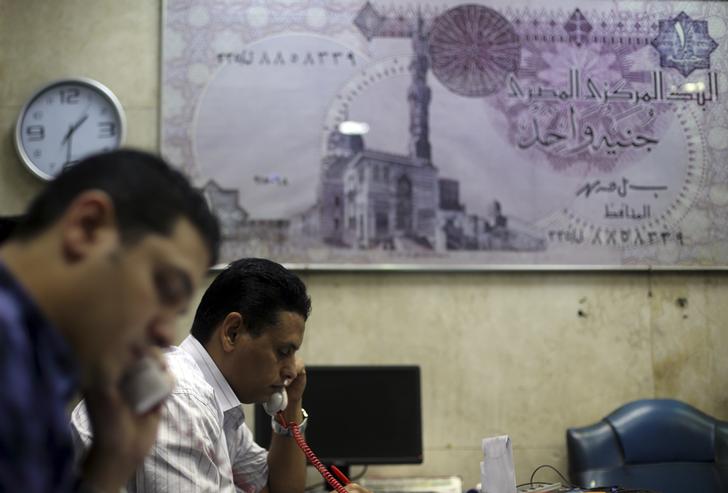By Nourhan Fahmy
The official and parallel market rates of the Egyptian pound are converging, with the official rate expected to “spike temporarily” possibly rising to EGP 19 to the dollar before stabilizing at EGP 12-13 in 2017, an Arqaam Capital report stated.
Egypt floated the national currency last week, thus allowing the pound to be determined by supply and demand forces through the interbank mechanism.
Before the decision to float, the pound had weakened to unprecedented levels on the parallel market, reaching EGP 18 to the dollar, more than a 100 percent differential with the official rate, amid an acute dollar shortage.
Arqaam Capital said in its report published Wednesday that early signs indicate dollars have started to flow to banks, which have attempted to meet individual clients’ needs and secure the foreign currency needed for importers “albeit in small amounts.”
“Egypt appears to be on a different and better path for growth and investment,” the report read.
However, the firm expects the poor and middle-income segments to “feel the pain before the gain” and to attempt to challenge the government’s decision to just monitor and regulate.
Challenges could present themselves in the process in that the “reform momentum slows, consumers and corporates take longer than expected to recover (beyond one year), portfolio investors do not come to the rescue and the parallel market persists.”
Arqaam holds the view that supervision by the International Monetary Fund (IMF) will reduce the likelihood of reforms slowing significantly, giving a time frame of six months for economic recovery.
In August, Egypt reached staff-level agreement with the IMF over a three-year USD 12 billion funding facility. The executive board is set to meet on November 11 to give approval for the request.
Deputy Finance Minister Ahmed Kouchouk told Reuters on Tuesday that Egypt will receive the first USD 2.75 billion tranche of its loan next Tuesday.
Egypt is to receive USD 9.95 billion in financing by the end of 2016, and a total of USD 16.2 billion in fiscal year 2016/ 2017, according to the report.
In what Arqaam calls a “paradigm shift” in Egypt’s economic vision, the government has embarked on several reform measures aimed at reducing the budget deficit and public debt.
The latest measures included the flotation of the pound, giving banks free rein to set the exchange rate, and cutting fuel subsidies.
The central bank also raised interest rates by 300 basis points “to rebalance currency markets,” according to a press release then.
Inflation rates are expected to reach 22-24 percent in the first quarter of 2017, according to Arqaam, after which the central bank could cut interest rates by 2 percent at least.
Arqaam projects a further rise in the budget deficit, despite the fuel subsidy cuts, due to a hike in global oil prices and the depreciation of the national currency.
The budget deficit was estimated at 12.2 percent of GDP in FY 2015/ 2016.
This content is from Aswat Masriya







Comments (0)